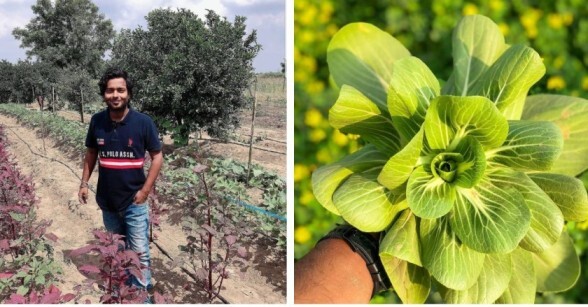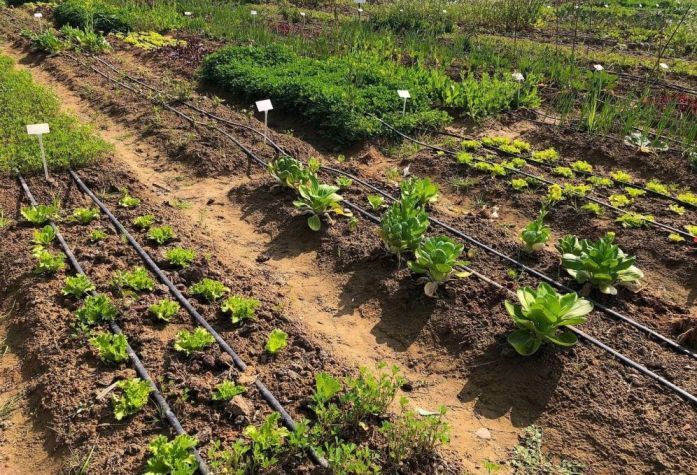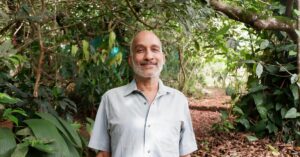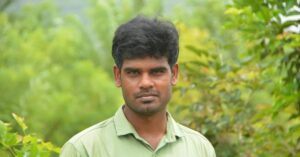With 28000 Followers, Bihar Man Uses Instagram to Make Organic Farming Easy for All
After completing his master’s in Agricultural Engineering, Satyam Jha decided to spread awareness and knowledge among the youth about the need to switch to organic farming through his Instagram page.

After completing his MTech in Agricultural Engineering from the India Council of Agricultural Research (ICAR), 29-year-old Satyam Jha’s life took an unconventional turn. Instead of taking up a job, he decided to become a “green Instagrammer”.
Starting off with simple Instagram videos on how to grow plants at home organically in 2017, Satyam now owns a farm consultancy company called Sprouted Jungle and earns nearly Rs 7 lakh with over 28,000 followers on Instagram, @iamsatyamjha.
Through ‘Sprouted Jungle’ he helps people who want to grow their own organic food in their garden and also set up air-purifying plants at home in sustainable pots.
If you scroll through his feed, you will find a plethora of videos stating unknown facts relating to organic farming and beautiful pictures of fields from across the country.
“When I was doing my research in college, I got a deeper understanding of how much chemical-infused agricultural practices prevail in our country. We all know how harmful consuming such food can be, and so I chose this path; I wanted to educate people about organic farming,” Satyam tells The Better India.

‘Choosing organic farming was a conscious decision’
Hailing from the Darbhanga district in Bihar, Satyam grew up in a home full of farmers, and he would often watch his grandfather working in the fields growing vegetables.
“My grandfather has been a practising farmer for ages. As a young kid, I would be intrigued by how plants grow, how seeds sprout, etc. Even at a young age, I knew I would have a career in the agricultural field,” he says.
On his choice to farm organically, he says, “I have seen people die by eating chemical-infused vegetables. I even have acres of land that have lost their nutritional value because of the usage of chemical fertilisers. Our forefathers were way more sustainable than us — they used natural fertilisers like gobar khad (dung manure) to grow plants, unlike us, who have infused our food and bodies with chemicals,” he further adds.
To make organic farming knowledge easily accessible to everyone, especially children, Satyam believes in simplifying the methods.
“If we educate young people now, they will grow up to teach an entire upcoming generation to grow healthy food. So, I made this my life’s mission — educate laymen about the benefits of organic farming, sustainable living and environment conservation,” says Satyam.
Satyam realised the power of social media, especially Instagram, that could help him reach the youth. So, he started making tutorial videos about growing plants organically and sharing informative posts on the platform.
“While my parents didn’t understand what I was doing instead of taking up a regular job, they were very supportive. Initially, I didn’t have a lot of followers on my page, but I kept going. Now, I post informative posts about sustainable living, organic farming, living a chemical-free life, and growing our own food,” he says.
Through his videos, Satyam helps his followers to grow plants using homemade compost in waste containers like tetra packs, old plastic boxes, glass containers etc.
“If you ask a child where tomatoes or onions come from, they will simply say ‘the supermarket’. They have no idea how much back-breaking work goes into growing every piece of vegetable or fruit. I don’t just want them to know the ways around organic farming but also want them to practise it in their lives,” he says.
Grow healthy, eat healthy, and stay healthy
In 2018, Satyam started an organisation called Sprouted Jungle that helps people to set up air-purifying plants in sustainable planters.
“I wanted to help people to grow their own natural air purifiers and detoxers using materials available at home. All these use organic and natural compost and sustainable planters. Besides, I also take consultancy projects and help those who want to grow their own vegetables organically in their home’s backyard or if they have farms,” he says.
To educate the youth about organic farming, Satyam takes classes — both online and offline. He has given lectures at colleges like Christ university in Lonavala, Vikas Group of Institutes, and Vikas College of Engineering and Technology in Vijayawada. To date, he says that he has reached over 500 enthusiasts through online classes.
Satyam adds, “I visit different schools and colleges and hold seminars there. Those classes are quite elaborate and detailed. I teach them to grow vegetables like ridge gourd, cauliflower, cabbage, brinjal, tomato, etc, in addition to sharing knowledge about horticulture, vertical farming, herb plantation, and plant pathology.”
Giving an example of how one can use household waste to grow plants, Satyam says, “At home, we all have tin cans and plastic containers. Instead of throwing them out, we can save them from reaching landfills by putting them to good use.”
He continues, “Peace lily is the easiest plant to grow — easy to maintain and reduces air pollutants in our surroundings. There are other plants like Syngonium and Spider plants which are also very easy to maintain. The idea is to ditch buying things from the market like plastic pots and use what is available at home.”
Satyam has his own organic farm in Gurugram, and he enjoys tending to his little kitchen garden in his apartment.
He stays by his motto of growing healthy food and eating healthy.
“Soil is like a womb for plants, and if the womb is healthy, so will be the fruits of the plant. That’s why conserving the quality of soil is very important. By using chemical fertilisers and pesticides, we are not only killing the soil but also ruining the food, which affects our bodies,” Satyam concludes. If you found our stories insightful, informative, or even just enjoyable, we invite you to consider making a voluntary payment to support the work we do at The Better India. Your contribution helps us continue producing quality content that educates, inspires, and drives positive change. Choose one of the payment options below for your contribution- By paying for the stories you value, you directly contribute to sustaining our efforts focused on making a difference in the world. Together, let’s ensure that impactful stories continue to be told and shared, enriching lives and communities alike. Thank you for your support. Here are some frequently asked questions you might find helpful to know why you are contributing?

To learn more from Satyam, visit his Instagram profile.
Edited by Pranita Bhat
This story made me
-
97
-
121
-
89
-
167














